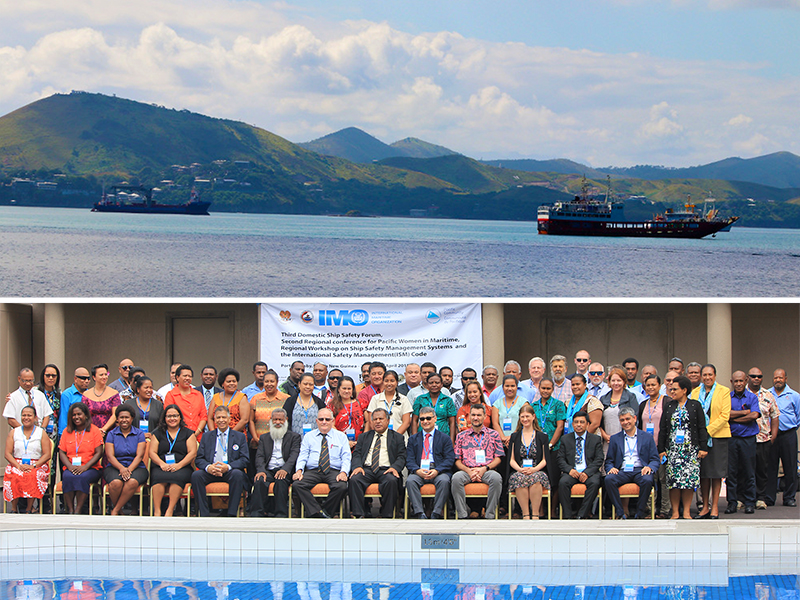Domestic ship services is a major part of the transport system in Pacific Island Countries. To address key concerns surrounding the safety of domestic ferries, a three-day event was held in Port Moresby, Papua New Guinea (23-25 April). One major outcome of the forum was the adoption of a community-based approach which aims to involve end users of domestic ship services to improve awareness as well as to enhance safety measures.
Under the theme, Supporting safe shipping to protect safety of life and environment, the third domestic ship Safety Forum also looked at the progress made in implementing the 2012 Suva Action Plan, which aims to bring safer ferry operations throughout the region.
IMO's Bekir Sitki Ustaoglu, Head Asia-Pacific of IMO Technical Co-operation Division said, "The dependence of Pacific Islanders on inter-island shipping is of paramount importance and every effort must be made by government and industry alike to ensure that only safe ships sail."
The Forum reiterated that all stakeholders in the Pacific are committed to working towards ensuring that all vessels operate in a sound and safe condition, posing no danger to the lives of those on board or to the marine environment.
Over 100 participants from Pacific Island countries and territories*, as well as local stakeholders from the industry participated in the forum. They shared experiences and agreed on solutions to deal with emerging and persistent issues in relation to domestic shipping safety in the Pacific and discussed the responsibilities of ship operators and maritime administrations.
The forum was organized by IMO in collaboration with with the Pacific Community (SPC) and the National Maritime Safety Authority (NMSA) of Papua New Guinea.
*Cook Islands, Federated States of Micronesia, Fiji, Kiribati, Marshall Islands, Nauru, New Zealand, Palau, Papua New Guinea, Solomon Islands, Tuvalu and Vanuatu.
The conference also addressed the International Safety Management (ISM) Code, which provides an international standard for the safe management and operation of ships and for pollution prevention. A workshop was conducted to enhance awareness of the ISM Code in the South Pacific Community. The workshop discussed the socio-economic, political, and cultural specifics of the region. Participants were encouraged put forward their thoughts about issues that specifically impacted upon domestic ferry safety in their respective administrations. The interactive workshop allowed participants to understand the challenges in their own region but also to facilitate learning and sharing experiences from other regions.
